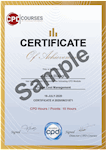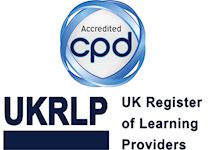Forensic Accounting : The Investigative Process
Module | Tutor Support & Exam included | 10 CPD Credits | Free COVID-19 Course & Letter of Completion
CPD Courses
Summary
- Exam(s) / assessment(s) is included in price
- Tutor is available to students
Add to basket or enquire
Overview
Forensic Accounting The Investigative Process
The course comes with easy to understand e-learning study materials.
In the world of forensic accountancy, detecting the signs of fraud is only the first of many steps. For any suspected financial crime to be dealt with, it must first be investigated efficiently, professionally and as extensively as necessary. Forensic accountants technically assume the role of accountant, investigator and prosecuting lawyer – all rolled into one. They identify cases of financial fraud, carry out in-depth investigations and summarily present evidence, as and when required. Success in the field is dependent on mastering every aspect of the detection and investigative process from start to finish. The better your understanding of the mechanics of forensic accountancy, the better your position to excel in the profession.
This insightful tutorial has been designed for anyone looking to become a qualified and capable forensic accountant. Explore weighted and unweighted solvability factors, developing an investigation plan and how to set both goals and expectations accordingly. Study financial planning, personnel planning, technology planning and more. Learn about database searches, trash collection and the importance of understanding the case inside and out, in order to carry out an effective investigation.
CPD
Course media
Description
Forensic Accounting The Investigative Process
Objectives
- Recognise Objective Setting for fraud cases
- Discuss Case Planning and process of Investigation
Programme Content
Topics
- Solvability Factors
- Weighted solvability factors.
- Un-weighted solvability factors.
- Setting the Expectations and Goals
- Develop an Investigative Plan
- Financial Planning
- Personnel Planning
- Technology Planning
- Understanding the Case
- Database Searches
- Trash Collection
Course Benefits
- Full Tutor Support
- Self paced, no fixed schedules
- Available to students anywhere in the world
- 24/7 Access to the LMS ( Learning Management System )
- Easy to understand quality e-learning study materials
Course Material
All course materials are included in the course price. All your study material will be available on our learning management system for which you will get access once you are enrolled. The material can be downloaded and printed as well.
Our distance learning course materials are specially written for home study and contain a wealth of knowledge in easy to understand language. We use variety of media to help you learn. Your course may use any of the following different media which you can use from home or where ever you choose to study:
- Online course materials
- Question papers
- Additional Supporting Material
- Useful Links
Course assessment
You will be continually assessed throughout the course. Your assignment will be marked by your tutor and independently moderated. The feedback on your assignment will then be sent to you. On receipt of this, you may wish to contact your tutor to discuss the feedback.
Tutor Support
When you enrol on a course with Brentwood Open Learning College you are allocated your personal tutor. Tutor’s help and support will be available throughout your studies with the college. He/she will assess your work and will provide you with regular feedback on your progress.
Who is this course for?
Forensic Accounting The Investigative Process
- Finance and accounting staff
- Accountants interested in exploring forensics
- Candidates looking to enhance their CVs
- Confident , self motivated and passionate candidates
- Accounts professionals seeking for CPD
Requirements
Forensic Accounting The Investigative Process
No prior knowledge is required to take this course.
*Note: This is an independent unit not a complete course so does not equalize to a course. This will give you 10 CPD points to add on your CV. At the end of the unit, you can claim CPD Accredited unit by paying £35 accreditation fee and postal charges (£9 for UK students, £15 for outside UK).
Career path
Forensic Accounting The Investigative Process
Questions and answers
Currently there are no Q&As for this course. Be the first to ask a question.
Reviews
Currently there are no reviews for this course. Be the first to leave a review.
Legal information
This course is advertised on reed.co.uk by the Course Provider, whose terms and conditions apply. Purchases are made directly from the Course Provider, and as such, content and materials are supplied by the Course Provider directly. Reed is acting as agent and not reseller in relation to this course. Reed's only responsibility is to facilitate your payment for the course. It is your responsibility to review and agree to the Course Provider's terms and conditions and satisfy yourself as to the suitability of the course you intend to purchase. Reed will not have any responsibility for the content of the course and/or associated materials.



